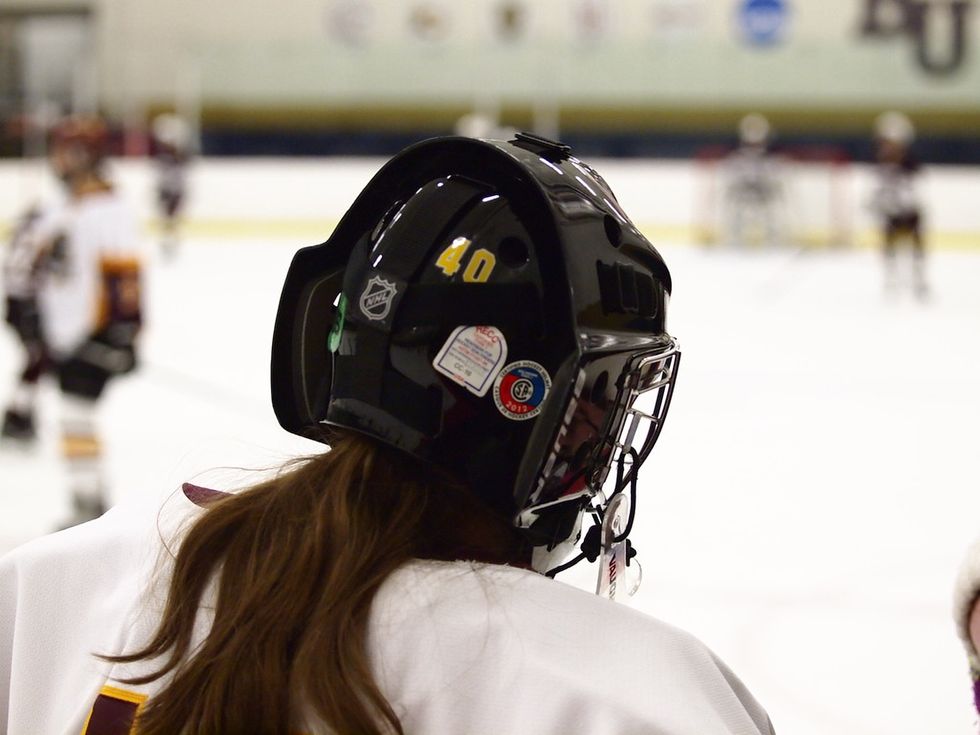From the second my dad first tied my skates when I was four years old to the final horn of the last game of my senior year of high school, I lived and breathed hockey. While the grueling two-hour long on-ice practices during the season and the hours of sprints, agility, and lifting in the summer may sound terrible to some, I loved how strong and energized I felt when waking up each morning. As a goalie, I also dealt with enormous pressure to do well each game, arguably more than other players on the ice. And I was addicted. All eyes were on me, and this was the one area in my life where I reveled in the spotlight.
Throughout high school especially, I adored every second I was on the ice, but I found myself frustrated that I didn’t have all that much time for other areas of my life - my friends, my academics, even my family. So when it came time to look into playing college hockey, I decided I would leave my skates behind after my final high school season. Although my last game was heart-wrenching, I was sure that I had made the right decision. I learned a lot about myself in the months that followed. Because all athletes have to leave their respective sport at some point, I figured if I share some of what I learned, it may help another’s transition into a life without sport become a fraction smoother.
1. I missed it twice as much as I thought I would
I miss the competition. I miss the team environment. I miss the satisfying thud of a puck hitting my pad as I make a save and the adrenaline rush when my team scores. I even miss the heartbreak and pain of losing. I knew I would miss all these when I left the sport, but I never expected these feelings of yearning to become so powerful that I nearly shed tears while watching my first collegiate hockey game from the bleachers.
2. There was a bit of an identity crisis
Every time I heard the word “hockey,” I needed to mention that I played. Whether I was talking to my friend who already knew this piece of information or the girl across the dorm I literally met two minutes ago, I had to tell everybody. Because if I wasn’t an athlete, then who was I? Heck, even my tinder bio displayed my hockey photos long after I left the sport because all my potential matches needed to know I played the game.
3. I don’t get to eat whatever I want anymore
In-season, because I was burning so many calories, I could easily eat an entire cheap, frozen pizza from the grocery store in one sitting. All the pizza calories would simply burn off, leaving me hungry again. Now, not only am I never hungry enough to even attempt such a feat, but if I did manage to eat that much I would likely be sick afterward. I’ve found that because I’m not in such a high-intensity activity for multiple hours a day, I have to especially watch what I eat because I can see the effects on my body more than ever before.
4. Though it hurts, eventually the void fills.
Just as it takes time to heal from a broken heart, it took me time to fill the space in my soul that hockey took up. I started spending a lot more time with friends, especially the new friends that I made once I began my freshmen year of college. I joined new activities and put time into new hobbies - for example, writing this article. And as time went on, the feelings of loss faded. Do I still miss the sport? Absolutely. I was raised on hockey, and it will always remain an essential part of my childhood. However, I’ve found that as my last game fades into further of a memory, I look back with less yearning for days past and more joy for how hockey has prepared me for my future. And I’m excited for that future to come.
















